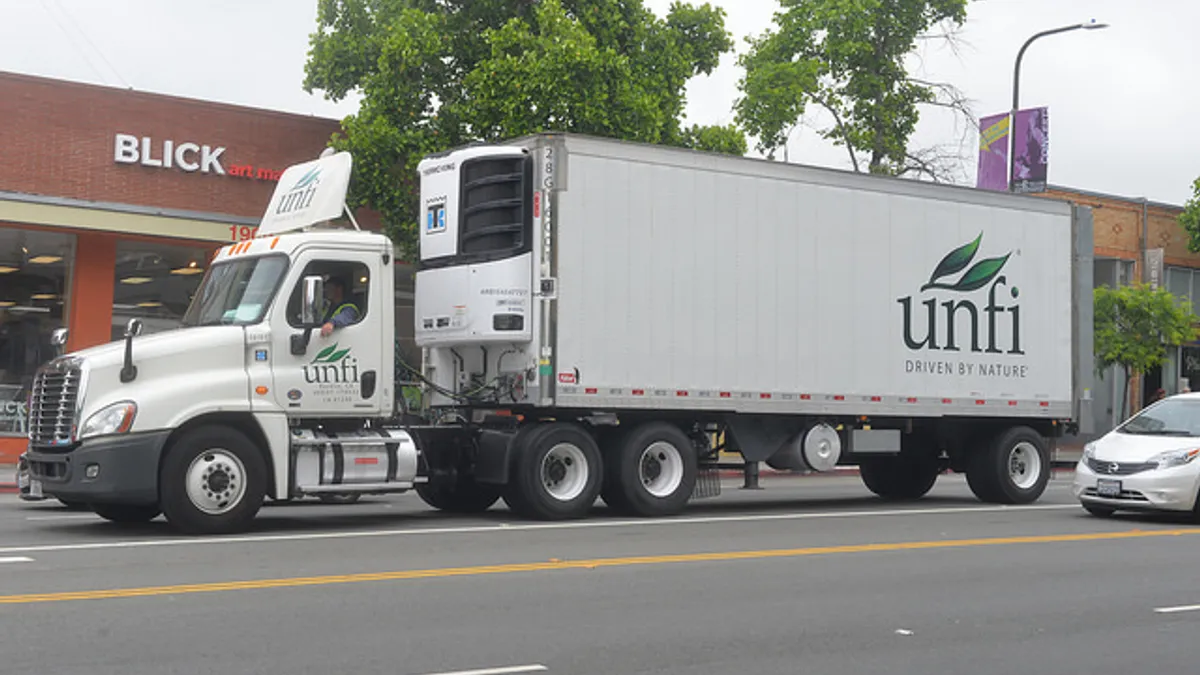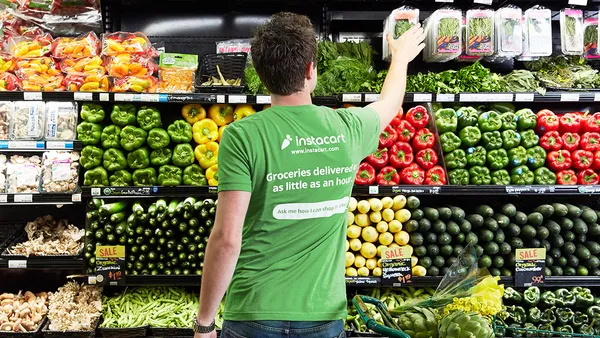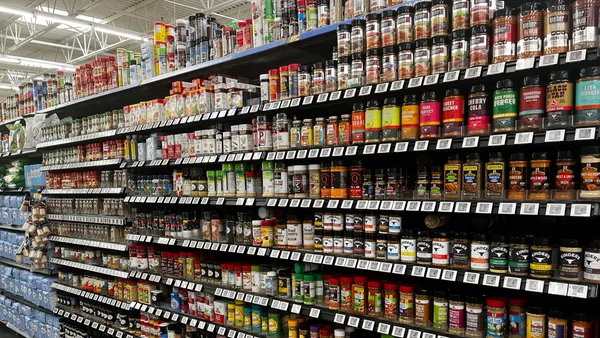Dive Brief:
- United Natural Foods, Inc. (UNFI) has pledged to a host of new sustainability targets it aims to reach by the year 2030, including donating a quarter of a billion pounds of food, reaching zero landfill waste from its distribution centers, meeting a 30% reduction in distribution center energy intensity and logging 200,000 associate volunteer hours, the company announced in a press release Monday.
- The wholesaler also set out several more short and medium-term environmental goals, listing the establishment of emissions reduction targets by 2022, use of renewable energy sources for at least 20% of its electricity consumption by 2023 and a 50% reduction in food waste by 2025.
- UNFI committed to the new measures as it released its 2020 Environmental Social Governance (ESG) report, which details a range of socially-responsible company policies adopted in 2020 and further drives the message of UNFI’s commitments to addressing the climate crisis, food insecurity and inequality.
Dive Insight:
With UNFI’s announcement in December that it was drafting plans to submit to the Science Based Targets Initiative (SBTi), which provides companies with clear goalposts in line with the Paris Agreement, the distributor said it would soon be the “first North American wholesale grocery distributor to align with SBTi." To achieve its sustainability milestones, UNFI has hired a climate program manager and an energy and sustainability manager to focus on improving efficiencies in carbon emissions.
Its ESG Report also noted that its CDP Climate Change response score had improved to an A- in 2020 due to its work toward lower carbon emissions. Competitors in the food distribution space vary dramatically in their commitment to sustainable practices: While Sysco Corporation also received an A- score, US Foods scored a C and C&S Wholesale Markets scored an F by the CDP, an international non-profit that helps companies and cities report their environmental efforts.
UNFI’s headline ESG achievements in 2020 include its piloting of a solar-powered refrigerated trailer, a 7% diversion of food waste from landfills since 2019 and 23 million pounds of donated food delivered. Food waste has taken a prominent position in efforts by grocery companies, with close to 200 food suppliers, manufacturers and retailers committed to halving their food loss and waste by 2030 by having joined the U.S. Food Loss and Waste 2030 Champions voluntary coalition.
UNFI’s targets on food waste go even further in their ambition, having pledged a 50% reduction by 2025, to address an issue which the nonprofit ReFED declares an $18.2 billion problem and which is a major source of wasteful greenhouse gas emissions.
In order to meet its 2025 food waste projections, UNFI recently established a cross-functional team to tackle the issue at varying stages in their operations. Several grocers and food suppliers have taken to artificial intelligence, adopting predictive algorithms that track unsold foodstuffs in their departments to fine-tune ordering and logistics that minimize food waste, while other companies have turned to donating to food banks or selling "ugly" produce at discounted prices.
As well as taking on climate change mitigation in its operations, UNFI also revealed a host of social and governance objectives and achievements in its 2020 report. It launched its "Better For You" initiative last year to address food deserts in rural and low-income communities, sourced 2.5% of its spending from “diverse suppliers” and paid out nearly $30 million in temporary bonuses and incentives to its essential workers due to the COVID-19 pandemic. Temporary bonuses for grocery workers have been a sticking point during the second and third waves of the pandemic, as many major chains were slow to dole out additional compensation to workers despite logging high profits.












